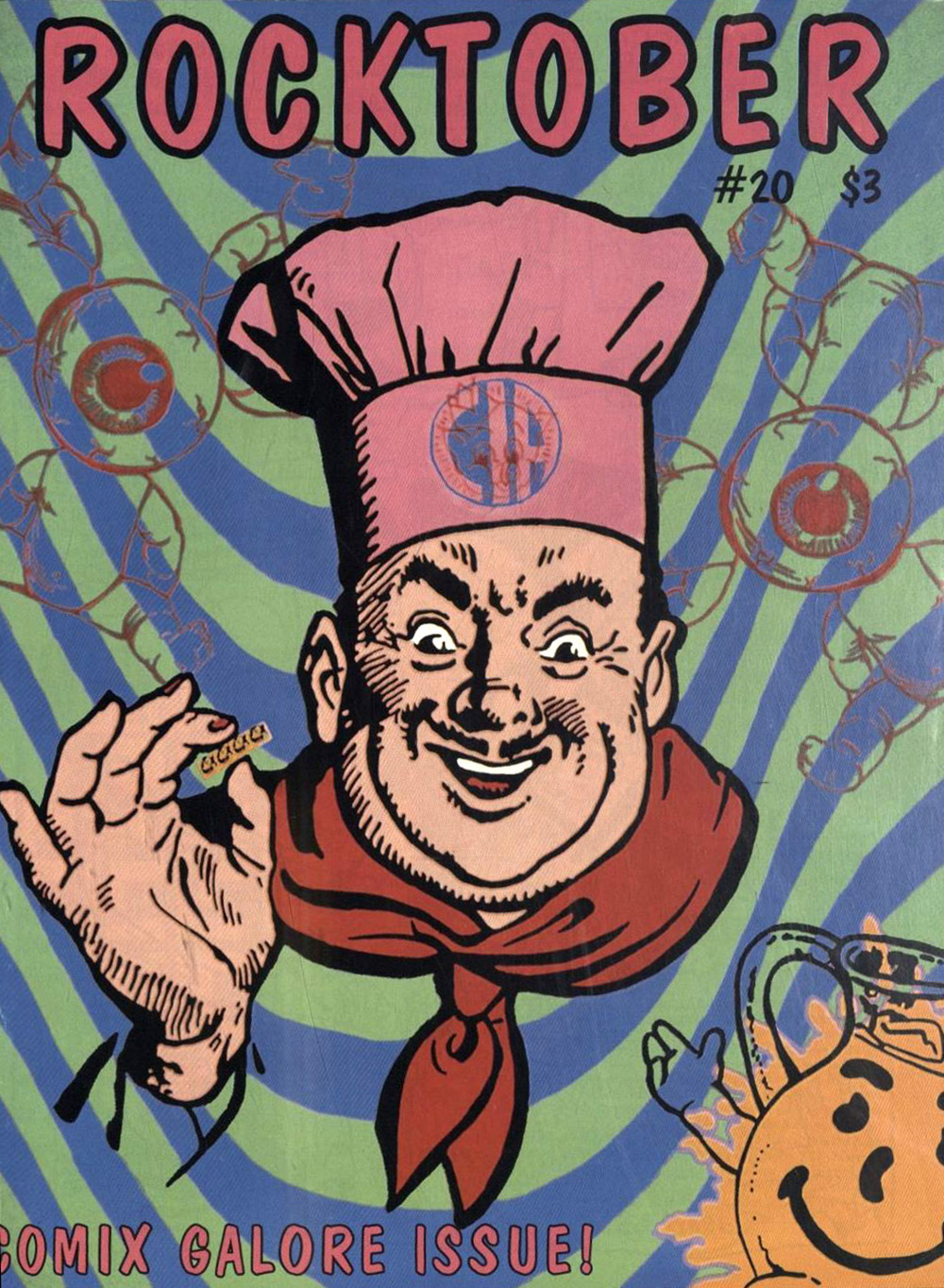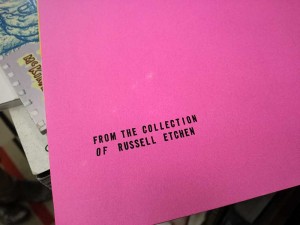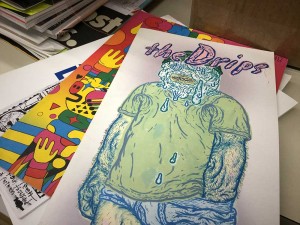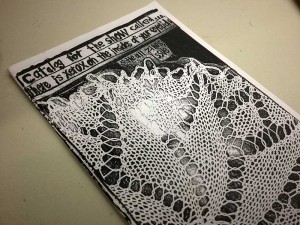
The event referenced below has already occurred.
This Thursday (11/3), five local artists will gather for a panel at the Fine Arts Library (FAL) to talk about how they were impacted by the presence of the DIY ‘zine movement.
The FAL began collecting ‘zines in 2010 with some guidance from Russell Etchen, the manager/curator of the much-beloved and gone-too-soon Domy Books, which provided Austin (and Houston before) with an opportunity for browsing (and occasionally purchasing) niche publications and other media in art, design, literature and photography. Domy closed and Etchen moved on, but he’s maintained his ties to Austin, and he recently generously donated his personal collection of ‘zines to FAL — four large boxes of rare and sometimes unique works that represent a breadth of formats and genres, and superlative examples of the form.
Russell is returning to Austin for a visit and a show at Co-Lab Projects’ Demo Gallery (721 Congress Avenue), and kindly accepted an invitation to moderate the panel at FAL. He also took some time out to answer a few questions from us about his own experiences with self-publishing.

Tex Libris: Since they are such a very outsider form, what was your entrée into the world of ‘zines?
Russell Etchen: I started reading Mad Magazine and superhero comics first. Had a subscription box at my local strip mall comic and game shop and went weekly.
A subscription to Wizard led me to odder corners of comics like Jeff Smith’s Bone, anything by Jim Woodring, and early Mike Allred’s Madman (the black and white work).
Simultaneously I was discovering music ‘zines like Maximumrocknroll, the underrated Chicago based Rocktober, Punk Planet, and many more smaller publications in the punk and hardcore scene.
Met some like-minded friends who helped me make the leap to “adult comics” like Dan Clowes’s Eightball, the self published issues of Adrian Tomine’s Optic Nerve, and John Porcellino’s King-Cat.
John’s mini-comix/zine distro Spit and a Half, and the long-deceased Factsheet Five opened me up to everything that followed.
Which were you first, creator or collector?

RE: I was always both. I collected to create. I created to collect.
How many ‘zines have you produced, and are you still making them today?
RE: I’ve produced two dozen, maybe three dozen ‘zines to date. I still self publish now and then for myself and others. Two last fall. Nothing currently in the works.
My personal memory of you is from Domy Books, and I know that (former head librarian) Laura Schwartz connected with you during that time to get your help in developing what became the ‘zine archive at FAL. Can you tell me a little bit about how you met Laura and what you did to help guide her in choosing materials?
RE: Unless I’m mistaken, I met Beth and Tim Kerr first. They both work/worked in the UT library system for decades. Beth introduced me to Laura, and Laura let me know that she was working with a budget to start purchasing interesting small press and self-published publications.
Selfishly, I guided Laura to works I was particularly fond of and publications I felt wouldn’t get archived anywhere else.
Did you use the same criteria for developing your own collection, or was that more organic?

RE: A mix. Mostly organic, but sometimes strategic. I was seeking the underground and was trying to go as deep as I could. I was looking for fellow outliers and I found them. So many of them.
How would you describe the purpose(s) of a ‘zine? Or does that question even have an answer?
RE: A ‘zine is self published self-expression. An extension of a perceived community and was/is cultural currency. You want to trade? I make one, too.
How would you characterize the relevancy or currency of ‘zines today? What’s their relationship to technology? This is a recurring question that we have to consider at the libraries regarding physical/digital.
RE: To me, these days, they seem to be primarily an extension of the business card or portfolio. Or one-upmanship within a scene (echo chamber). Too precious. A digital generation discovering the analog and turning it into a fetish. Exceptions abound, but it feels like an inversion of itself. I don’t trust them anymore. The intentions have been blurred.
What made you decide to donate your collection to FAL? It’s pretty amazing, and based on the small segment I’ve seen, encompasses a broad variety of types and formats.

RE: After spending twenty years collecting and editing the collection, moving it everywhere I went and hardly ever looking at them anymore, I finally decided that someone else will get much more out of them. That, and I need the space while still wanting to know my “stash” is relatively safe and accessible. Plus, someone else is going to catalog it all for me!
What do you hope people get out of having access to your collection?
RE: Should one person rifle through them and find inspiration, my job is done. Should another person find that obscure publication that helps their research, my job will be done. Beyond that, I just know they’ll just sit in boxes in my closet and continue to decay and that would be a waste. I care too much about analog history to do that to them. And I’m done with them.
Are you still collecting?
RE: I’m actively un-collecting at this point, but I will still pick up cheap paperback literature for the same reason I picked up comics or ‘zines. To feel like I’m saving a small slice of history from absolute oblivion, and ’cause there are just too many books I want to read before I’m dust.
Gallery of covers from Etchen’s ‘zine donation:
Thursday’s panel features photographer/publisher Kelly Dugan of Peachfuzz, visual artist James Huizar of Puro Chingon Collective, editor/curator Amarie Gipson of MUD Magazine, designer/curator Phillip Niemeyer of Northern-Southern, and mail artist/musician Josh Ronsen of Monk Mink Pink Punk. Click for more info.
